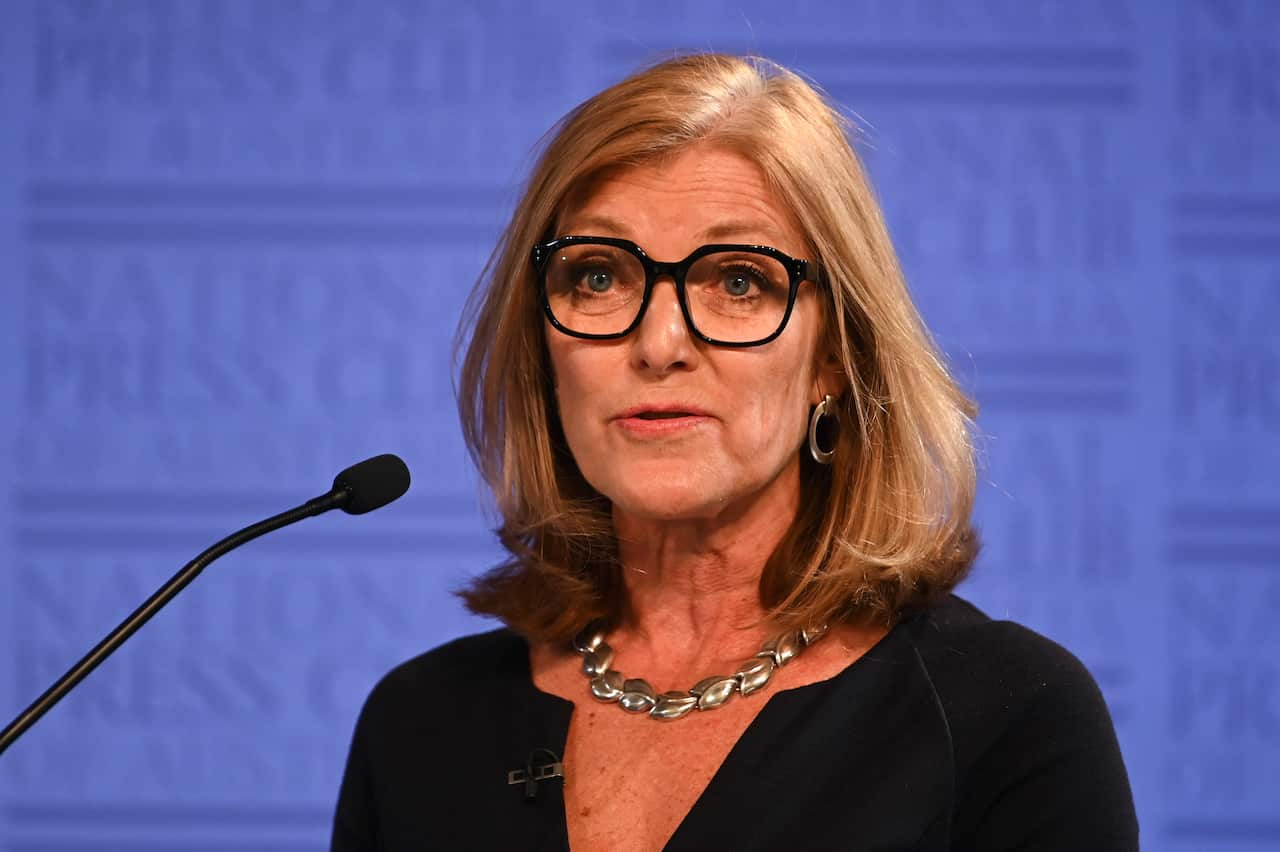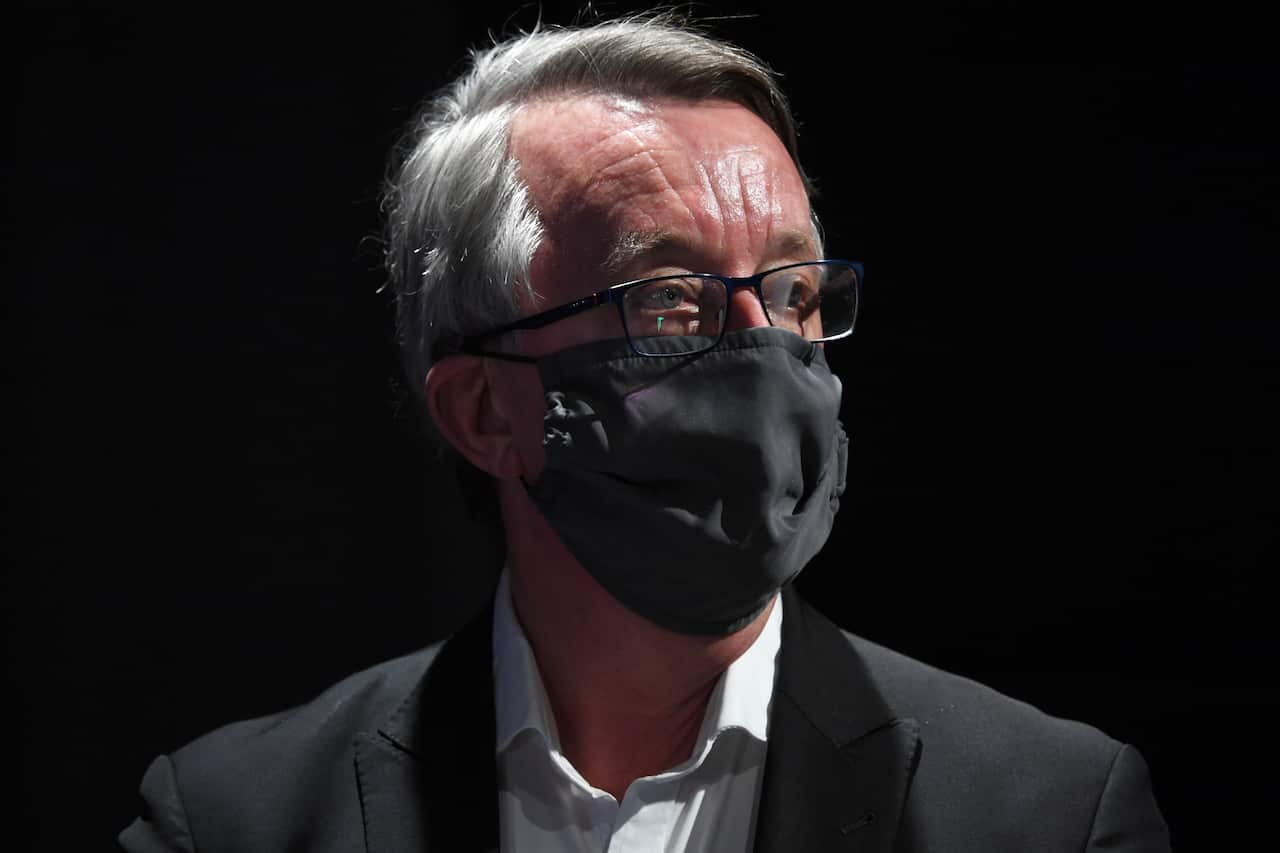An inquiry has found the Victorian government's reticence to overhaul its overwhelmed contact tracing regime cost lives during the state's deadly second wave of coronavirus.
The scathing assessment from the Legislative Council Legal and Social Issues committee comes in a 260-page report tabled in the Victorian parliament on Monday.
The upper house inquiry found the previous regime was "not fit to deal with any escalation in cases" at the start of the pandemic and was "significantly overwhelmed" as the second wave took off.
Improvements have been made to the system but the government's reluctance to concede or acknowledge errors contributed to substantial implementation delays, the committee ruled.
"However capable the current contact tracing solution is, it was not available when the Victorian public needed it," it said.
"This failure cost lives and was unable to be rectified without strict lockdown measures throughout the state."
The committee, chaired by Reason Party MP Fiona Patten, also found there was no evidence the Victorian government acted on reports that identified the need for extra contact tracing staff.

In his submission, former Department of Health and Human Services unit manager Tom Voigt said he recommended staffing for the contact tracing team be lifted from 14 public health officers to 24 six months before COVID emerged.
"Unfortunately, when this information was put before the appropriate DHHS Deputy Secretary the response was a very firm and direct 'no' and that no additional funding was available, nor would it be sought as the public health team was a low priority at that point in time," Mr Voigt said.
Stakeholders, the committee said, felt a "perceived reluctance" from the government to appropriately prepare for the arrival of coronavirus, with much of its responses subsequently "crisis built and reactive".
The inability to address these identified shortcomings troubled the committee, who suggested the lack of willingness to invest indicated there may have been complacency about public health and emerging threats.
It also reserved sharp criticism for the state's largely paper-based contact tracing system, which required the manual entry of information, deeming it "was not fit to deal with any escalation in cases and led to significant errors".
In his evidence before the inquiry last month, Australia's chief scientist Alan Finkel said some cases were lost or duplicated as a result.
Victoria has since moved to a digitised system, created by US tech firm Salesforce, which automates the process end to end.
The committee said the system had put Victoria in an improved position to manage an influx of cases, identifying and contacting primary contacts within the recommended 48-hour window.
This software was first offered to the government on 24 March, but the committee confirmed it was initially declined before Salesforce was selected to build the customer relationship management system on 28 August.

Despite these shortcomings and others, Ms Patten said she believed lessons had been learnt by the government, with the new and improved contact tracing regime now able to deal with up to 15,000 test results a day.
"We are now far better prepared should Victoria face a similar situation in the future," the chair wrote.
Health Minister Martin Foley said the government would respond to the inquiry's 47 findings and 19 recommendations once it's received alongside a Public Accounts and Estimates report into its response to the pandemic.
"The Victorian government and the Victorian community has learned a lot over the course of 2020," he told the ABC.
"What we've now got in place is a public health, test and tracing system that has enabled us 45 days continuously of zero community transmissions."
If you are experiencing cold or flu symptoms, stay home and arrange a test by calling your doctor or contact the Coronavirus Health Information Hotline on 1800 020 080.
News and information is available in 63 languages at https://sbs.com.au/coronavirus
Please check the relevant guidelines for your state or territory: NSW,Victoria, Queensland, Western Australia, South Australia, Northern Territory, ACT, Tasmania

